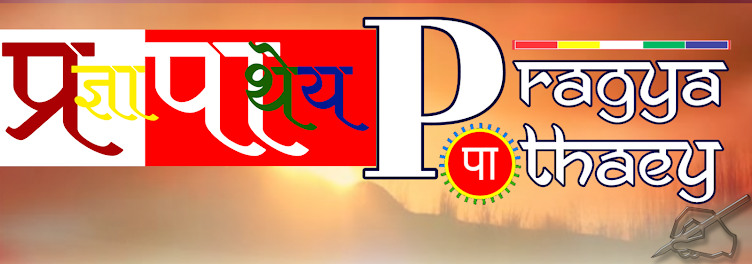शुक्रवार, मई 14, 2010
Acharya Mahapragya cremated Raj Sadosh
A brilliant mind – a beloved teacher — Sudhamahi Regunathan—
सोमवार, मई 10, 2010
आचार्य महाश्रमण उनके अगले उत्तराधिकारी
मैं मेरे धर्मसंघ के सभी साधु-साध्वियों और समण श्रेणी की चित्त-समाधि के लिए प्रत्यन करता रहूंगा, यह मेरा संकल्प है। तेरापंथ धर्मसंघ के श्रावक समाज को भी आध्यात्मिक पोषण प्रदान करते रहने का संकल्प करता हूं। इसके अतिरिक्त जैन शासन और मानव जाति की यथासंभव और यथोचित सेवा करने का संकल्प करता हूं। इस कठिन परिस्थिति में हम सब मनोबल रखने का प्रयास करें और धर्मशासन की प्रभावना का प्रयास करते रहें।
Views
- Mother Teresa National award of peace by Inter faith Harmony foundation of India in 2005
- Communal harmony award i.e. Sampradayika Sadbhavana Puraskar by Govt. of India in 2004[52]
- Ambassador of Peace (London) by Inter Religions and international federation in 2003
- Lokmaharshi by New Mumbai Municipal corporation in 2003
- Indira Gandhi National Integration award in 2002
- D.Litt by Netherland Inter Cultural Open University in 1999
Acharya Mahapragya Ji's Writing

Mahapragya started writing when he was 22 and since then has never stopped[45]. Mahapragya has written more than two hundred books in Hindi, Sanskrit, Prakrit, and Rajasthani languages. Contents include intense and in-depth treatments of meditations, mind, human psyche and its traits, root of emotions, manifestation of emotions through human behaviour, Mantra saadhana, Yog saadhna, Anekaant, Non violence, and Jain history.
In his book Art of Thinking Positive, he explores the root causes of negative thoughts, and provided methodology towards its transformation[46]. Other book titles include Towards Inner Harmony, I and Mine, Mind beyond Mind, Mysteries of Mind, New Man New World, Mirror of Self. He has provided a great detailed analysis on hidden causes of the emotions, functioning of human psyche, manifestation of psyche through one's behaviour.
He also wrote many books on Preksha Meditation. In these books he as described various techniques of meditations and their effects, human psyche, human physiology, hormonal influences, endocrine system, nervous system[47].
He has done extensive work on Anekaantvad - the philosophy of nonabsolutism. He himself is a great follower of this philosophy propounded by Lord Mahaveer and affirms that there is no problem that can't be resolved with the application of Anekaantvad. He has explained how can it be useful in our daily life. He has shown the ways how one can improve his thought process towards Anekaant and use it for a peaceful life and co-existence[48]. His book Anekanta The Third Eye discusses the details of the philosophy.
His writings on economics provide a detail model of economic structure which works for the benefit of each and every individual. He has given vision for a peaceful society free from evils. He has suggested conduct for people to lead a happy individual as well as a social life.
He has written many big books on Jain Philosophy providing a serious material on Jain beliefs and vision. Jain darshan: manan and mimaansha is one of those important creation and a research work in which he has brought out numerous deep facets of Jain belief system with detail interpretation. Another precise work is Philosophical Foundations Of Jainism. Shraman Mahaveer is biographical work on Mahaveer. Mahapragya has tried to depict Mahaveer through his experience and achievements in meditation. Sambodhi is a rhymic conservation between Lord Mahaveer and the prince-monk Megha Kumar, in which Mahaveer enlightens the later. Mahapragya has extensively written on lives and philosophies of Acharya Bhiksu and Acharya Tulsi
Mahapragya has made great contribution to Sanskrit through his poetry. Has also written poems and bhajans in Hindi. Ashruvina, Mukulam in Sanskrit and Rishabhayana in Hindi are some of his poetic creations.
Acharya Mahapragya writes in with great clarity. His sentences are short and his style direct. He only suggests, he never forces his view. He may assert his belief, but his language is conscious of relativity even in expression. He often resorts to passive voice. Between one full stop and the next sentence, a kingdom can be built. [49]


